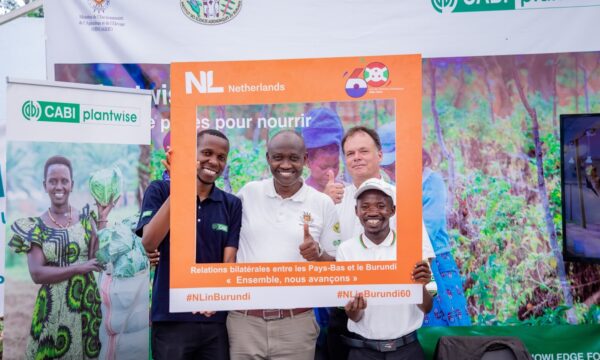Contributed by Melanie Bateman CABI, Switzerland
This year marks the tenth anniversary of the entry into force of the Rotterdam Convention, which aims to:
- Promote shared responsibility and cooperative efforts among Parties in the international trade of certain hazardous chemicals in order to protect human health and the environment from potential harm;
- Contribute to the environmentally sound use of those hazardous chemicals, by facilitating information exchange about their characteristics, by providing for a national decision-making process on their import and export and by disseminating these decisions to Parties.
The Rotterdam Convention covers pesticides and industrial chemicals that are particularly problematic; these have been banned or severely restricted for health or environmental reasons at a national level in multiple countries and the governing body of the Convention has agreed to list them in Annex III. Parties of the Rotterdam Convention can only trade these chemicals with the “prior informed consent” of the importing country. In addition, any Party that is a developing country or country with an economy in transition that is experiencing problems caused by a pesticide formulation in its territory, may propose its inclusion as a severely hazardous pesticides formulation (SHPF) in Annex III of the Convention. As of January 2014, the Convention is legally binding for its 153 member countries and the EU.
A recent IISD article by Clayton Campanhola, Executive Secretary of the Rotterdam Convention, and Christine Fuell, Coordinator of FAO’s part of the Rotterdam Convention, details the history and governance of the Convention. The article also explains how the Rotterdam Convention is working with the Stockholm and Basel Conventions towards the ultimate objective of protecting human health and the environment from hazardous substances.
Given that more than two-thirds of the chemicals listed in Annex III of the Rotterdam Convention are pesticides, the Convention is particularly relevant to the small holder farmers that Plantwise supports.
2 Comments
Leave a Reply
Related News & Blogs
How does crop rotation help keep pest populations in control?
Crop rotation is a simple, effective way to manage pests, improve soil health, and boost yields. Suitable for all growers, crop rotation supports sustainable agriculture and reduces the need for chemical inputs. By targeting pest lifecycles and reducin…
6 June 2025






Today environment is polluting more and more by chemicals which is harmful for environment and human being. At tat time Rotterdam Convention is working very well to protect human health and environment from hazardous substances.. Well Done…
[…] three conventions that govern chemicals and hazardous waste safety at the global level (the Basel, Rotterdam and Stockholm Conventions) have launched an online search tool for finding technical and scientific […]